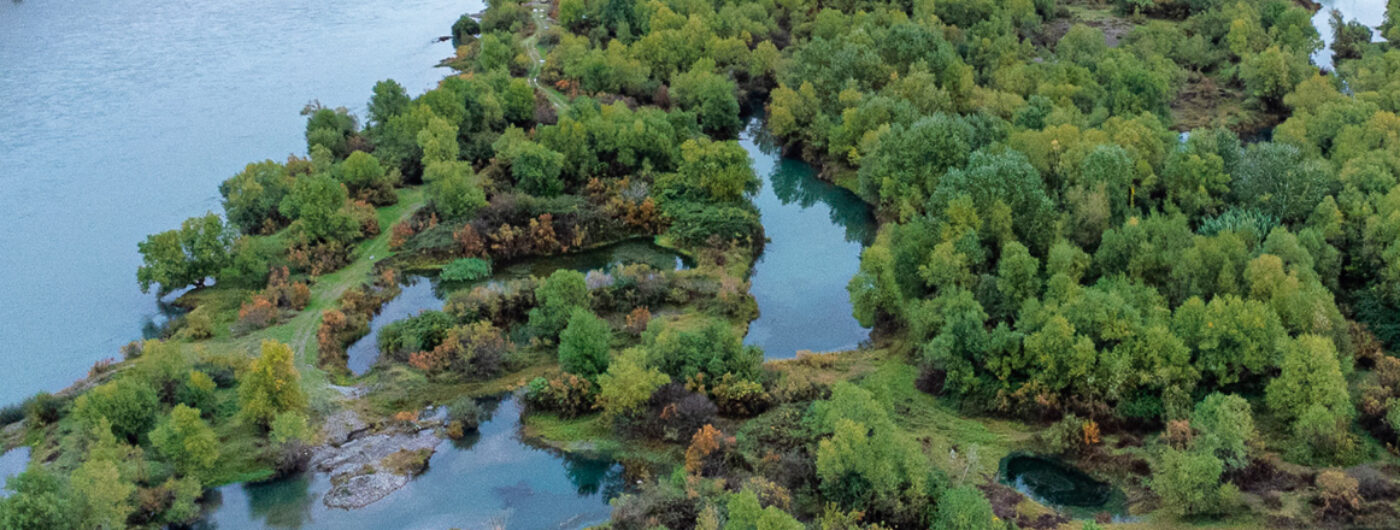
World Water Day: UfM supports the preservation of the Mediterranean “biological supermarkets”
- Groundwater resources are the main source of the water supply in many Mediterranean countries and are subjected to pressures resulting from unequal distribution, accessibility, and quality issues. Groundwater-intensive exploitation contributed to the decrease, deterioration, and disappearance of over 50% of wetlands during the past century.
- Wetlands’ ecosystem services are among the most productive habitats in the world. They can be considered as “biological supermarkets”, since they provide great volumes of food for many species, including humans. Yet, wetlands cover only between 1.7% to 2.4% of the total area of the Mediterranean coast.
- With a view to protecting Mediterranean wetlands, the Union for the Mediterranean (UfM) supports the “Wetlands-based Solutions” project, which seeks to save, restore, and manage outstanding nature-based solutions in the Mediterranean coast.
19 March 2022. In the Mediterranean region, wetlands are among the most productive ecosystems, providing critical services for half a billion people. Coastal fisheries and sustainable agriculture rely on healthy coastal wetland ecosystems, providing important low-carbon sources of nutrition for our growing population. The largest areas of wetlands are in Egypt, France, Türkiye and Algeria, together making up about two-thirds of the Mediterranean Wetlands area.
The climate crisis, including droughts, is hitting the Mediterranean 20% harder than the rest of the world, but coastal wetlands play a vital role in mitigating future temperature increase. They currently store up to 40% of the world’s carbon and do it at a rate 10-20 times greater than temperate or boreal forests. Yet, besides providing natural solutions to many environmental problems, wetlands’ ecosystem services are among the most productive habitats in the world, and they can be considered as “biological supermarkets”. On top of that, in the Mediterranean region wetlands are providing critical services for half a billion people. Coastal fisheries and sustainable agriculture rely on healthy coastal wetland ecosystems, providing important low-carbon sources of nutrition for our growing population.
With a view to fostering a more effective conservation of these crucial habitats, the UfM supports the “Wetland-Based Solutions project”, promoted by MedWet. Through the protection and restoration of key wetlands, the project proposes coastal wetlands as key assets for nature-based solutions’ implementation to counteract anthropogenic impacts, and in particular, climate change. The Wetland-Based Solutions is a collaboration between 30 wetland expert partners from 10 countries, with the funding and support of the MAVA Foundation. They have come together and built a ground-breaking initiative to save, restore and manage outstanding nature-based Solutions in the Mediterranean coast, for the benefits of people, their wellbeing, and wildlife, where one third of the Mediterranean populations live.
The concept “Nature-based Solutions” consist in promoting the use of natural ecosystems through conservation or restoration interventions to address global societal challenges, such as climate change, natural disasters risk reduction (floods, avalanches, or fires), food and water supply, energy security, or even the issues of urban growth. They are real-world applications that demonstrate the benefits of nature and healthy ecosystems, providing a tangible return on investment and making a substantial contribution to human wellbeing.
More information
- “Mediterranean wetland restoration: an urgent priority” Restoring Mediterranean wetlands: the urgent and essential Nature-based Solution to the region’s most pressing challenges. Despite the vital roles they play, 48% of Mediterranean wetlands have been lost since 1970.
- The project “Wetlands-Based Solutions”

